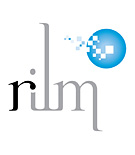Musicology is the scholarly study of music. Musicology research combines and intersects with many fields, including psychology, sociology, acoustics, neurology, natural sciences, formal sciences and computer science.
Music history, sometimes called historical musicology, is a highly diverse subfield of the broader discipline of musicology that studies music from a historical point of view. In theory, "music history" could refer to the study of the history of any type or genre of music. In practice, these research topics are often categorized as part of ethnomusicology or cultural studies, whether or not they are ethnographically based. The terms "music history" and "historical musicology" usually refer to the history of the notated music of Western elites, sometimes called "art music".

The Etude was an American print magazine dedicated to music founded by Theodore Presser (1848–1925) at Lynchburg, Virginia, and first published in October 1883. Presser, who had also founded the Music Teachers National Association, moved his publishing headquarters to Philadelphia, Pennsylvania in 1884, and his Theodore Presser Company continued the magazine until 1957.
The Arts and Humanities Citation Index (AHCI), also known as Arts and Humanities Search, is a citation index, with abstracting and indexing for more than 1,700 arts and humanities academic journals, and coverage of disciplines that includes social and natural science journals. Part of this database is derived from Current Contents.

The Musical Times is an academic journal of classical music edited and produced in the United Kingdom and currently the oldest such journal still being published in the country.

Répertoire International de Littérature Musicale, commonly known by its acronym RILM, is a nonprofit organization that offers digital collections and advanced tools for locating research on all topics related to music. Its mission is "to make this knowledge accessible to research and performance communities worldwide….to include the music scholarship of all countries, in all languages, and across all disciplinary and cultural boundaries, thereby fostering research in the arts, humanities, sciences, and social sciences." Central to RILM's work and mission is the international bibliography of scholarship relating to all facets of music research.
Anthony Newcomb was an American musicologist. He was born in New York City and studied at the University of California, Berkeley where he graduated with a Bachelor of Arts in 1962. He then studied with Gustav Leonhardt in the Netherlands while on a Fulbright Scholarship. He received an MFA (1965) and Ph.D from Princeton University in 1969.

The Répertoire International des Sources Musicales is an international non-profit organization, founded in Paris in 1952, with the aim of comprehensively documenting extant historical sources of music all over the world. It is the largest organization of its kind and the only entity operating globally to document written musical sources. RISM is one of the four bibliographic projects sponsored by the International Musicological Society and the International Association of Music Libraries, Archives and Documentation Centres, the others being Répertoire International de Littérature Musicale, Répertoire international d'iconographie musicale, and Répertoire international de la presse musicale.
Nicholas Cook, is a British musicologist and writer born in Athens, Greece. From 2009 to 2017, he was the 1684 Professor of Music at the University of Cambridge, where he is a Fellow of Darwin College. Previously, he was professorial research fellow at Royal Holloway, University of London, where he directed the Arts and Humanities Research Council Research Centre for the History and Analysis of Recorded Music (CHARM). He has also taught at the University of Hong Kong, University of Sydney, and University of Southampton, where he served as dean of arts.
Brian Robins is an English nonfiction author and editor.

The Web of Science is a paid-access platform that provides access to multiple databases that provide reference and citation data from academic journals, conference proceedings, and other documents in various academic disciplines. Until 1997, it was originally produced by the Institute for Scientific Information. It is currently owned by Clarivate.

19th-Century Music is a triennial academic journal that "covers all aspects of Western art music composed in, leading to, or pointing beyond the "long century" extending roughly from the 1780s to the 1930s." It is published by the University of California Press and was established in 1977. The editor-in-chief is Lawrence Kramer.

Michael Burden, FAHA, is an Australian musicologist, working in the United Kingdom. He was elected a Corresponding Fellow of the Australian Academy of the Humanities in 2018.
Alexander Rehding is Fanny Peabody Professor of Music at Harvard University. Rehding is a music theorist and musicologist with a focus on intellectual history and media theory, known for innovative interdisciplinary work. His publications explore music in a wide range of contexts from Ancient Greek music to the Eurovision Song Contest—and even in outer space. His research has contributed to Riemannian theory, the history of music theory, sound studies, and media archaeology, reaching into the digital humanities and ecomusicology.
Gary Alfred Tomlinson is an American musicologist and the John Hay Whitney Professor of Music and Humanities at Yale University. He was formerly the Annenberg Professor in the Humanities at the University of Pennsylvania. He graduated from the University of California, Berkeley, with a Ph.D., in 1979 with thesis titled Rinuccini, Peri, Monteverdi, and the humanist heritage of opera.

Musicae Scientiae is a quarterly peer-reviewed academic journal covering the field of music psychology. The editor-in-chief is Jane Ginsborg. It was established 1997 and is published by SAGE Publications on behalf of the European Society for the Cognitive Sciences of Music.
Dexter Edge is an American musicologist.
Frank Stewart Howes was an English music critic. From 1943 to 1960 he was chief music critic of The Times. From his student days Howes gravitated towards criticism as his musical specialism, guided by the advice of the conductor and professor Sir Hugh Allen and the critic H. C. Colles.

Mark Everist is a British music historian, critic and musicologist.

Die Musikforschung is a quarterly peer-reviewed academic journal of musicology which since 1948 is published on behalf of the Gesellschaft für Musikforschung by Bärenreiter. The editors-in-chief are Panja Mücke, Manuel Gervink, and Friedrich Geiger. The journal covers music history, theory, and practice. A review section discusses German and foreign-language books and scholarly editions of sheet music. Reports provide summaries of relevant congresses and conferences.









